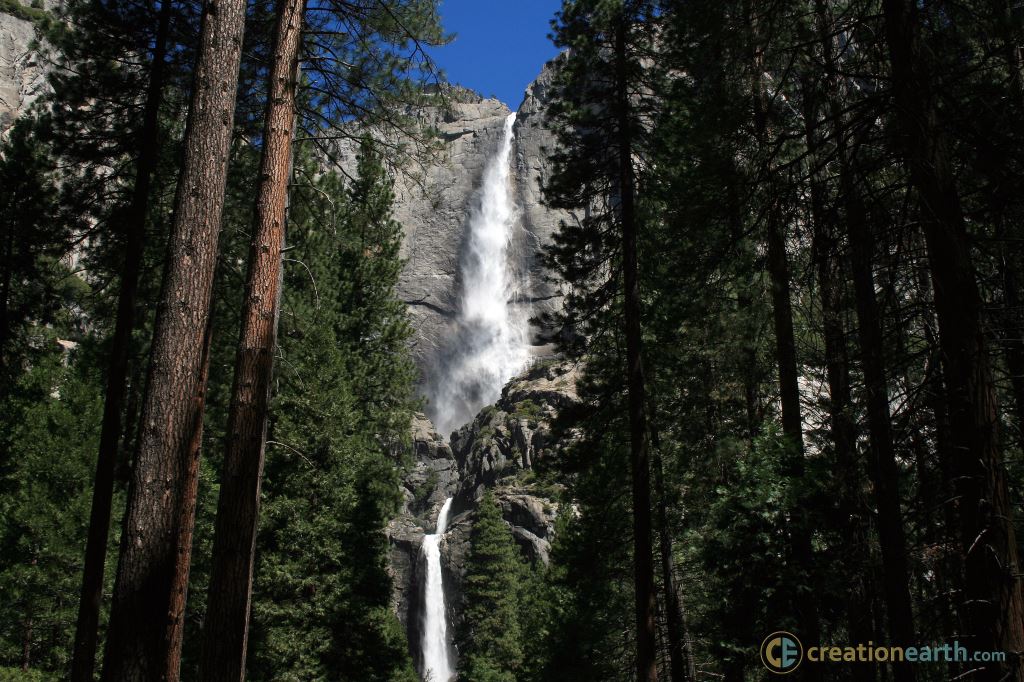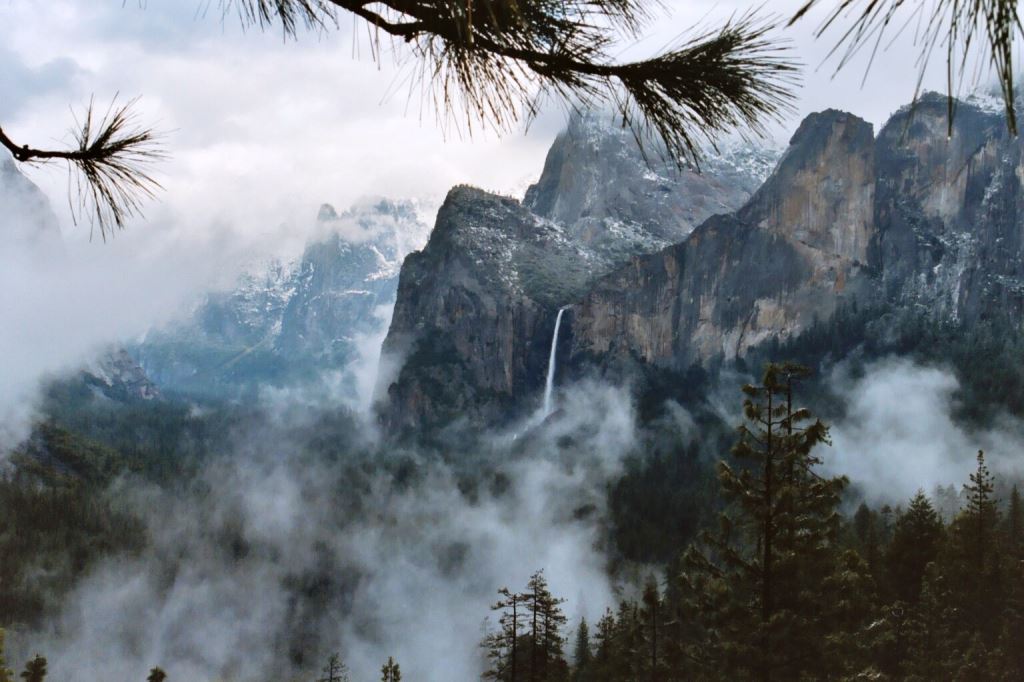There are five great waterfalls in Yosemite and a number of lesser ones which would be world-famous were it not for the comparison. During the flood waters of spring they are at the height of their beauty, amplifying the living landscape by their many columns and booming power. Later, as the snow fountains of the high places are gradually depleted, they take on a more filmy gracefulness but are lacking in exuberant impressiveness.

Three of the five falls, the Bridalveil, Yosemite and Illilouette, leap from hanging valleys into the main canyon. All of the minor falls are of the same type. Vernal and Nevada Falls, on the other hand, are formed by the entire Merced River pouring over great steps in the mighty box canyon at the east end of the valley.
First seen and most graceful is the Bridalveil, dropping daintily 620 feet at the right portal of the great valley gate. Well may we wonder how this charming fall with its exquisite rainbows came to be called Pohono or "spirit of the evil wind" by the Indians.
Most famous of all, the highest fall in Yosemite and in all the world, is the Yosemite. Its first sheer plunge of 1430 feet would set it apart as the greatest of its kind, but by a series of six quick jumps it descends another 800 feet to the brink of the final precipice, over which it leaps gracefully 320 feet to the valley floor. Seen from below, the 2600-foot drop often appears as one fall though in reality the Upper Fall is fully one third of a mile back of the lower. In winter a great ice cone, sometimes 500 feet high, forms beneath this Upper Fall, and its collapse causes riotous ice-floods in early spring. "Choolook," which in Yosemite dialect meant simply "the fall," has a most changing personality. In late summer and autumn he loses much of his springtime power and obeys every whim of the ever-changing winds. But the most delightful of all his moods may be seen during the time of the full moon when the foot of the Lower Fall is veiled by the delicate iridescence of lunar rainbows.
From the western edge of Panorama Cliff the lace-like Illilouette Falls disappears into its box canyon east of Glacier Point. The filmy character of its 370-foot foam-curtain is almost never appreciated because of the lack of a proper view-point. The old Indian name Too-tool-a-we-ack sought to reproduce the sound of gurgling and falling water.
Vernal and Nevada pour over the rims of two successive glacial amphitheatres in the main canyon of the Merced. Both carry a great volume of water and are much less variable than the mural falls.
Vernal, dropping 317 feet in a wide and unbroken sheet, has often been pronounced the symmetrically perfect of all falls. Its foot is always bathed in blowing mists which give rise to most exquisite circular rainbows. Referring to the spray, the Yosemites called the fall Yan-o-pah or "little water cloud."

Nevada, widely tossing out its spray-rockets, gives a vast impression of power which is probably nowhere equaled except in the Grand Canyon of the Tuolumne. In its descent of 594 feet it strikes a projecting ledge, which caused the Indians to name it Yo-wy-we or "twisting rock."
There is yet another great fall in the Yosemite region, but concerning it little is known. It is so inaccessible in the mighty Tenaya Canyon that it is even nameless, and no one has ever reached its base. Seen from afar pouring over a rounded precipice in the canyon bottom it appears to be between 600 and 1000 feet in height.